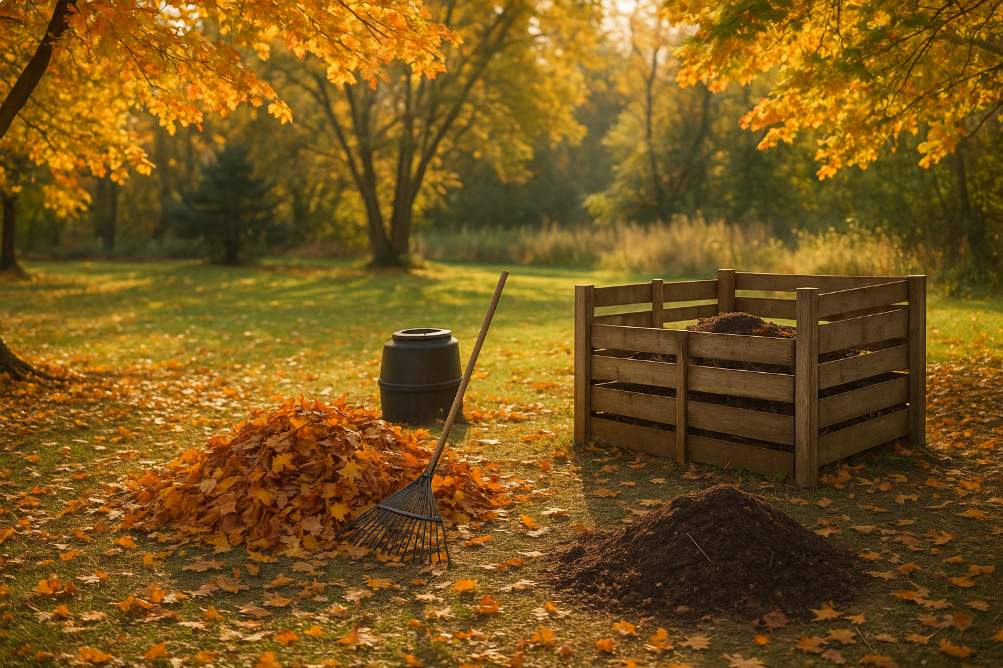Recent Posts
? Eco-Friendly Ways to Dispose of Fall Leaves and Garden Waste
Posted on

As the last of the leaves tumble down, the crisp autumn air reminds us it’s time for one more outdoor cleanup before winter settles in. But instead of bagging everything up for the landfill, there are earth-friendly ways to handle your fall leaves and garden waste — and most of them help your yard and garden thrive naturally!
? 1. Mulch Instead of Toss
Leaves are nature’s free mulch! Run over dry leaves with your mower to create a fine mix, then spread it under trees, around shrubs, or over flower beds. It keeps the soil moist, protects roots from frost, and slowly enriches the ground as it decomposes.
? 2. Start a Compost Pile
Composting fall leaves and garden trimmings turns waste into rich organic matter. Layer “browns” (leaves, twigs) and “greens” (grass clippings, fruit and veggie scraps), keeping it slightly damp. A sprinkle of soil or compost starter helps it break down faster — and Kleen Green can even help keep odors at bay.
? 3. Create Leaf Mold for Garden Gold
If you have extra leaves, pile them separately, dampen them, and let them sit for several months. The result is leaf mold, a soft, earthy soil conditioner that’s great for vegetable gardens and container plants.
? 4. Skip the Burn Pile
Burning leaves might seem convenient, but it releases pollutants and can be unsafe in dry conditions. Composting or mulching instead keeps nutrients local and the air clean.
? 5. Help Wildlife Prepare for Winter
Consider leaving a small pile of leaves in a quiet corner of your yard. It becomes a cozy winter shelter for beneficial insects, butterflies, and even toads — all part of a healthy ecosystem.
? 6. Clean Up Naturally
Once the outdoor chores are done, rinse off tools, boots, and hands with Kleen Green Enzyme Cleaner. It’s safe, non-toxic, and great for breaking down organic residue — so you can finish your fall cleanup without harsh chemicals.
? Final Thought:
Every leaf is part of nature’s cycle. By handling them responsibly, you’re giving back to the earth and setting the stage for a cleaner, healthier spring.
 Loading... Please wait...
Loading... Please wait...





 South Africa
South Africa